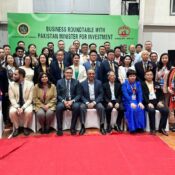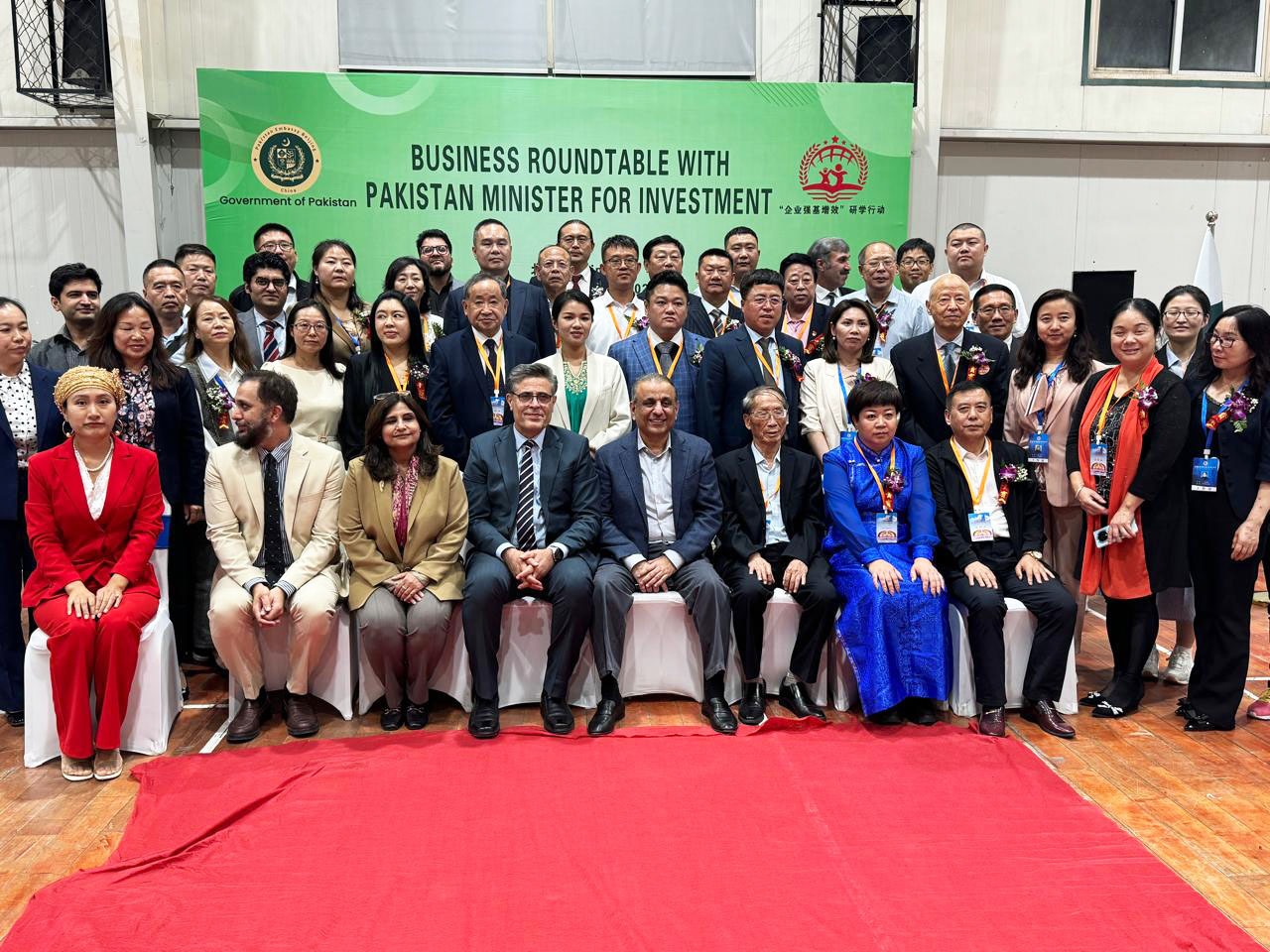
Charting a Path to Progress: Abdul Aleem Khan’s China Visit Promises Economic Uplift for Pakistan
Federal Minister for Communications, Privatization, and Board of Investment, Abdul Aleem Khan, recently embarked on a significant visit to Beijing, China, where he attended various high-profile meetings and conferences. His engagements with Chinese officials, business leaders, and international stakeholders underscored Pakistan’s commitment to strengthening bilateral relations and boosting economic growth through strategic collaborations. Let’s take a closer look at the key highlights of his visit.
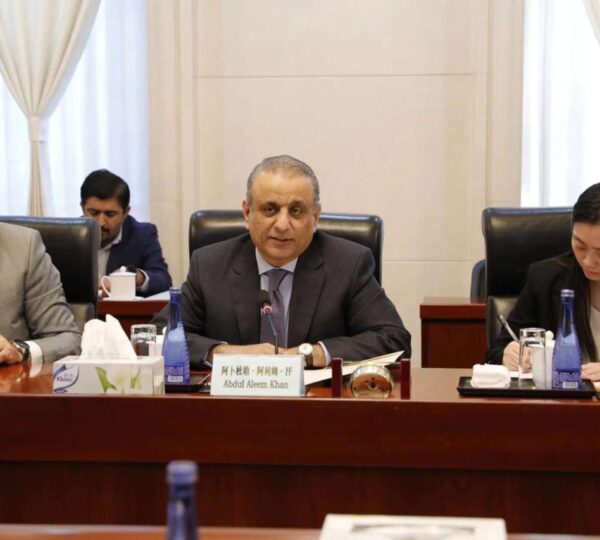
Infrastructure Projects with China Set to Boost Economic Growth
In a pivotal meeting with China’s Minister of Transport, Li Xiaopeng, Abdul Aleem Khan discussed collaborative efforts on four major infrastructure projects, including the ML-1 railway line and the M-6 and M-9 motorways. These discussions also explored the construction of the Karakoram Highway and tunnels from Kaghan Naran to Babusar Top, crucial for enhancing Pakistan’s connectivity. Abdul Aleem Khan emphasized that these projects would not only improve infrastructure but also create job opportunities and contribute to national development.
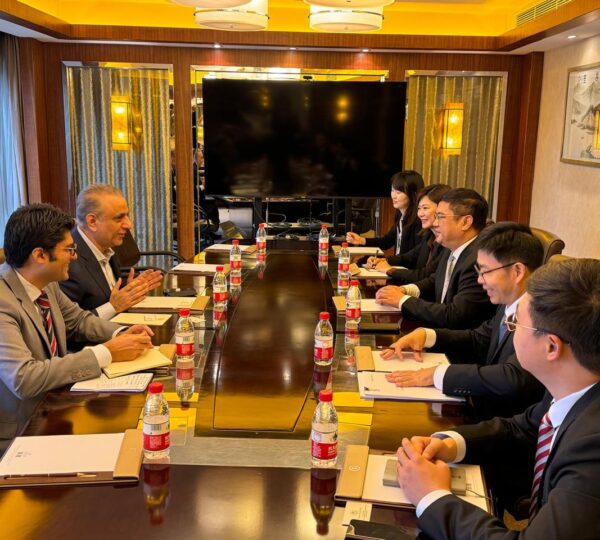
Addressing Key Challenges and Promoting Sustainable Growth
Abdul Aleem Khan also addressed key challenges faced by Pakistan, such as urban population growth and environmental concerns. He highlighted the importance of prioritizing citizens’ safety while enhancing transportation infrastructure. Advocating for the modernization of highways and ports, he stressed the potential of CPEC and the Belt and Road Initiative (BRI) projects to drive Pakistan’s economic growth. His vision for the future includes embracing green energy and clean technology in the transport sector, reflecting his commitment to sustainable progress.
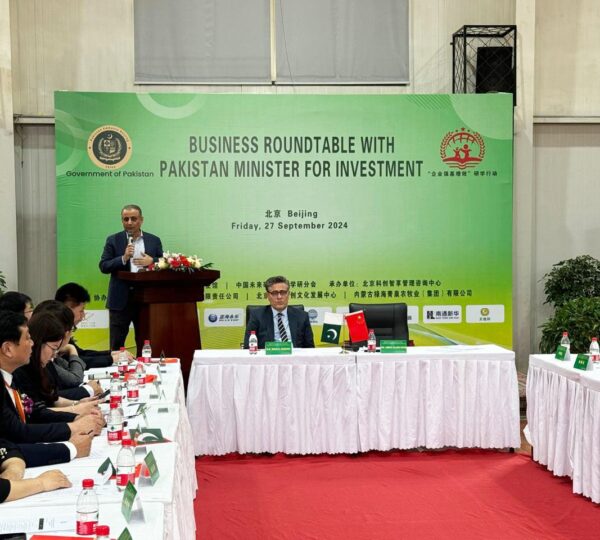
A Roadmap for the Second Phase of CPEC
At the Global Governance Conference in Beijing, Abdul Aleem Khan outlined Pakistan’s readiness for the second phase of CPEC, emphasizing the “5 Es” – Economic Zones, Export, Energy, Equity, and Environment. He discussed the critical role of improved road infrastructure in driving industrial development and attracting foreign investment. His plans for better highways and ports, enhanced digital connectivity through cross-border optical fiber cables, and safe public transport services signify a comprehensive approach to economic and regional development.
Regional Connectivity with Tajikistan:
Driving Prosperity and Economic Growth for Pakistan
During the Global Transport Forum, Abdul Aleem Khan met with Tajikistan’s Minister of Transport, Azim Ibrahim, to discuss a four-country transit route agreement between China, Afghanistan, Tajikistan, and Pakistan. The conversation centered on strengthening regional ties and enhancing connectivity through joint ministerial meetings and working groups.
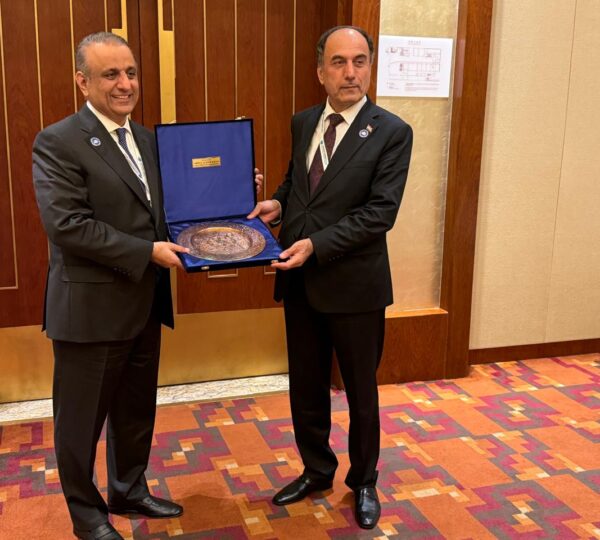
Fostering Economic Ties with China Roads and Bridges Corporation
In his meeting with the Chairman of China Roads and Bridges Corporation, Abdul Aleem Khan reiterated Pakistan’s commitment to fostering strong economic ties with China. The discussion focused on Chinese investments in Pakistan’s privatization projects and special economic zones, particularly in Karachi. Highlighting the importance of public-private partnerships, he explored potential collaborations on projects like the Sukkur-Hyderabad Motorway and the Karakoram Highway.
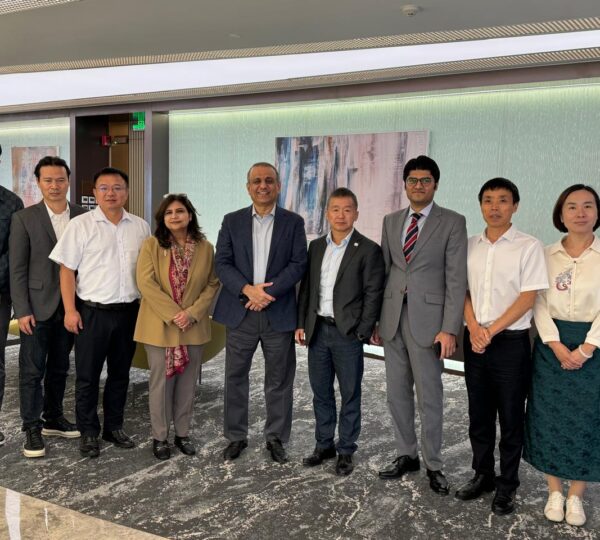
Showcasing Pakistan’s Investment Potential at the Business Roundtable
At a business roundtable conference in Beijing, Abdul Aleem Khan addressed over 25 prominent Chinese companies, showcasing Pakistan’s favorable investment climate. He emphasized the potential for collaboration in various sectors, including agriculture, pharmaceuticals, logistics, and technology. Highlighting Pakistan’s youthful population, skilled labor force, and cost-effective opportunities in IT, he assured Chinese investors of a supportive business environment.
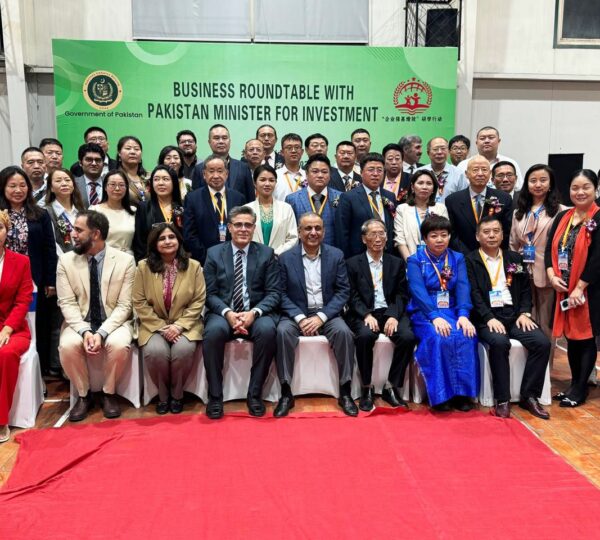
Conclusion
Abdul Aleem Khan’s recent visit to China marked a significant step forward in strengthening Pakistan-China relations. His proactive engagements and strategic discussions with Chinese officials and business leaders have set the stage for enhanced cooperation in various sectors, from infrastructure development to technology and investment.




